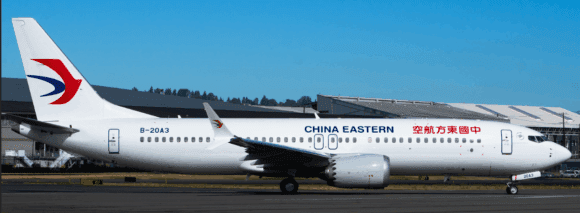
Wisk Aero Media Kit Aircraft 1 HD
Boeing’s $450 million investment in eVTOL maker Wisk is a clear indication that the aerospace giant is not prepared to leave the upcoming Urban Air Mobility market to the competition. With many start-ups preparing to enter the UAM scene and Airbus and Embraer also active, Boeing’s investment in Wisk reconfirms eVTOL interest.
Wisk announced the investment on January 24, making it “one of most well-funded Advanced Air Mobility companies in the world. The company will use the investment to develop its sixth version of its all-electric, fixed-wing Cora air taxi that flies autonomously over 25 miles/40 kilometers at a speed of 100 miles/160 kilometers an hour. The vehicle has twelve electric motors. With the pilotless concept, the Cora stands out from most other eVTOL players that, for now, have to include manned operations.
In July 2018, Boeing invested $5 million in the predecessor of Wisk, when it was called Kitty Hawk. The company was founded in 2010 and is the original designer of the Cora two-seater. The investment through Boeing’s HorizonX Ventures was seen as a strategic investment into an upcoming market. “When paired with the broad portfolio of complementary data service offerings within Boeing, Kitty Hawk is poised to help us shape the future of safe autonomous flight,” Brian Schettler, managing director of Boeing HorizonX Ventures said in the 2018 press release. “We are excited to explore new capabilities made possible through foresight, expertise, and a focus on holistic solutions that support the safe integration of unmanned systems into the national airspace.”
Kitty Hawk also participated with Boeing subsidiary Jeppesen to create unmanned traffic management systems in close cooperation under the FAA’s Low Altitude Authorization and Notification Capability.
In December 2019, Boeing and Kitty Hawk formally announced their new joint venture, although the initiative had started a year earlier. It now included Wisk, which itself had started in 2010 as Zee Aero. Boeing also was interested in developing luxury eVTOLs in a partnership with German sportscar maker Porsche. But in September 2020, Boeing’s aspirations in the eVTOL were in doubt when it announced to close its NeXt innovation division in response to the Covid-crisis and the costs associated with the MAX issues. NeXt had been developing a passenger and cargo air vehicle at its St. Louis base. Back then, Boeing said that it would evaluate its future investments in Wisk.
Reconfirmed belief ins Wisk’s business case
On today’s investment, Boeing Chief Strategy Officer Mark Allen says in a media statement: “With this investment, we are reconfirming our belief in Wisk’s business and the importance of their work in pioneering all-electric, Artificial Intelligence-driven, autonomous capability for the aerospace industry. Autonomy is the key to unlocking scale across all AAM applications, from passenger to cargo and beyond. That’s why straight-to-autonomy is a core first principle. Boeing and Wisk have been at the forefront of AAM innovation for more than a decade, and will continue to lead in the years ahead.”
Wisk CEO Gary Gysin welcomed Boeing’s investment: “We are incredibly fortunate to have Boeing as not only an investor but a strategic partner, which provides us with access to a breadth of resources, industry-leading expertise, a global reach, extensive certification experience, and more. As we enter this next stage of our growth, this additional funding provides us with capital while allowing us to remain focused on our core business and our number one priority, safety.”
No mentioning of Wisk is complete without referring to the legal battle with its competitor Archer Aviation which it accused of patent infringement and stealing Wisk’s concept. It filed a motion for a preliminary injunction to stop Archer from using its ideas for the Maker, notably the V-tail, and was seeking $1.0 billion in damages. This was dismissed by a federal court in San Francisco last July. Archer’s motion to end the case was also dismissed, but the battle still continues with a jury trial that according to Flying has been set a year from now on January 30, 2023.
On flight hours, Wisk claims to have done sone 1.500 with the full-scale Cora aircraft. Archer did its first hover tests only on December 16, 2021. The Vertical Flight Society reported last weekend that worldwide, there are now 600 eVTOL designs from 350 companies. Some $10 billion has been invested in the UAM market
Views: 7



